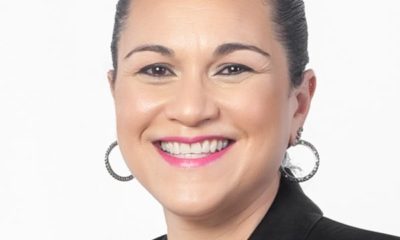
Denis O'Brien Chairman and Principal Shareholder Digicel Group
When Irishman Denis O’Brien through Digicel entered the Jamaican mobile telecom market over 10 years ago it was quickly shot down by Cable and Wireless (CW) executives as a failure in waiting and that the GSM network it was deploying was not up to scratch. The position taken by many in Jamaica was that CW was attempting to scare the Jamaican population away from this new entrant.
Due to the lack of competition at the time, as Cable and Wireless (CW) was a real monopoly across the Caribbean, international calls were costing up to 30 times more than in North America. Intra Caribbean rates were as expensive as rates for calls made from North America to the Caribbean. In Jamaica it was costing as much as 7 times more than making a call to the same international destination from North America.

GARY BARROW, President and Chief Executive Officer (CEO) of Cable & Wireless Jamaica (C&WJ) when Digicel launched
Compounding this situation was the fact that both public and private sector interests across the Caribbean have long complained that costly, inefficient telecommunication service has held back investment and jobs.
Denis O’Brien through Digicel decided to that he will make it dramatically easier and cheaper for people across Jamaica and the Caribbean to talk and do business via mobile phone.
Digicel as we all now know is now the dominant market leader in the Jamaican mobile telephony with over 2 million subscribers and a major foothold across the Caribbean.
We are now seeing the entry of REDJET into Jamaica and the Caribbean and it seems as if history is about to repeat itself.
REDjet is run and owned by chief executive and chairman Ian Burns and he is an Irishman.

Caribbean Airlines/Air Jamaica headed by Chairman George Nicholas III
The competition, Caribbean Airlines/Air Jamaica headed by Chairman George Nicholas III, has gone on record saying that he “rejects the view upstart carrier REDjet can be called an airline and insists that the regional carrier, which is owned by two governments, will refrain from entering a price war.”
He did not stop their either.
“You have planes that you lease,” he said. “It’s not an airline; we have to be serious about that. This is a father-and-son team that came from Europe and decided to set up,” he said. “I do not consider them an airline.”
According to published reports, Burns, a former partner of a British accounting firm, has said he hopes to create a Caribbean version of Europe’s cut-rate Ryanair by advertising flights for as little as $10. He says REDjet will make it dramatically easier for people across the islands to fly and do business. People in the Caribbean have long complained that costly, inefficient air service has held back investment and jobs.

REDjet is run and owned by chief executive and chairman Ian Burns and he is an Irishman.
This was the same view and position fellow Irish man Denis O’Brian took with Digicel.
Aviation analysts agree a low-fare alternative is needed since the Caribbean is one of the costliest airline markets in the world.
For years airlines around the world continued to treat air travel as a luxury as free meals and drinks, expansive and comfortable seats, personal attention from flight attendants and other amenities kept the price of plane tickets relatively high.
Budget airlines, as you would guess from the name, offer inexpensive tickets — sometimes as low as $50 for a one-way ticket. They manage this by cutting their own operating costs. How do they cut costs? There are many ways an airline can trim operating expenses, but budget airlines are most well-known for cutting back on passenger luxuries, or making passengers pay for luxuries à la carte.
Burns predicts that REDjet will succeed by cutting costs and frills: no free food or business class service, fast turnarounds at airports to save on parking fees, no overnighting by staff and only Internet reservations to eliminate booking offices.
That’s a predication worth betting on.

 Businessuite News242 weeks ago
Businessuite News242 weeks ago
 Businessuite Women3 weeks ago
Businessuite Women3 weeks ago
 Businessuite News244 weeks ago
Businessuite News244 weeks ago
 Business Insights4 weeks ago
Business Insights4 weeks ago
 Business Insights4 weeks ago
Business Insights4 weeks ago
 Businessuite Markets4 weeks ago
Businessuite Markets4 weeks ago
 Businessuite Markets4 weeks ago
Businessuite Markets4 weeks ago
 Businessuite News244 weeks ago
Businessuite News244 weeks ago












